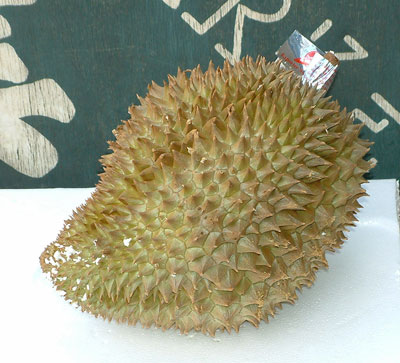Willow grouse. Found across swathes of northern Europe, these are so closely related to the red grouse of the Scottish grouse moors as to be indistinguishable. The willow grouse inhabits heather moors with willow, birch and juniper scrub while the red prefers moors and peatbogs with crowberry and cranberry.

Durian. This is a fruit which you either loathe or love. Anthony Burgess described it as being like "eating blancmange in a public lavatory". An acquaintance agrees but says there is an additional whiff of paraffin. Quantas will no longer allow passengers to carry them on flights as the smell is so offensive. However, some foods seem to acquire desirability through difficulty of acquisition or rarity, such as Japanese junsai; through danger, as in fugu, or through general disgustingness, as in raw sea cucumber or durian. It has been said of fugu that, if you are unaware of the risks when eating it, the flavour seems quite bland. I feel that durian is rather the same. I suspect that, if you removed the smell, the taste would seem unremarkable. In Thailand this is the most expensive fruit.
Dill. European dill is anethum graveolens. Dill is an herbaceous plant, about 1 meter (3 ft) in height, with wispy leaves, bearing clusters of small yellow flowers and oval, pod-like fruits. In Europe the leaves are often used to flavour fish dishes. The fruits are also left to ripen on the plant until they have dried. The fragrant seeds are then extracted, threshed and dried. It has an aroma slightly reminiscent of caraway, warm, aromatic and tingly.